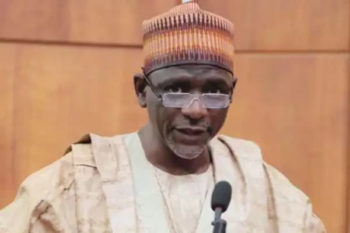
Nigeria is a great country. My country is a place where the unusual becomes the usual and we learn to adapt to it. I have been witnessing ASUU strike since my days in secondary school, and that was in the early into mid-nineties. I can recollect there was one that lasted for months and coincided with long vacation for secondary school students. The whole neighbourhood was lively yet trepidatious because of all the uncertainties that come with having idle young men and women around. More than 20 years later, the story has not changed. It appears every administration in Nigeria is predestined to inherit an unfinished business that involves ASUU. We are at it again; ASUU has been on strike for about 20 days now. And as expected, the demands now are not significantly different from what they have been.
In 2009, the federal government signed an agreement with ASUU on the issues of conditions of service, funding, university autonomy and academic freedom. By December 2013, the government signed another MOU with ASUU, which includes the commitment of 1.3trillion naira to public universities revitalisation, payment of the outstanding Earned Academic Allowances (EAA); address the shortfall in lecturers’ salaries and non-payment of salaries in staff primary schools since December 2015, and the issue of pension for lectures among other matters. So far, the government has only released 200billion naira to revitalised public universities, but I conjecture the lecturers are more pained by the government’s indifference to the other demands that directly impact on the socio-economic wellbeing of the Nigerian lecturer. I believe it is the right of every worker to demand just treatment within the confines of legal provision. On the one hand, the various Nigerian governments have been largely uninspiring in dealing with the ever-present ASUU conundrum. And on the other hand, ASUU seems to enjoy embarking on indefinite strike actions for motives that are isolated from the general public. Nevertheless, both parties appear to be blind to the overall consequences of the incessant strike and the subsequent extended breakdown in negotiations.
Perhaps, they are only bothered about the academic implication of the strike without assessing the possible economic repercussion, thus the reason for the trivial approach to the issues. Now, apart from the immediate short term economic implication the strike will have on businesses that service the universities in Nigeria, there is a wider long term economic upshot. The Vice Chancellor of a federal university in Nigerian once declared to the amazement of many that Nigerian graduates are unemployable because they lack the technical know-how to perform the available jobs. Many other notable Nigerians including the former Minister of Finance have at different times expressed this view. The result of this is that employers have to spend extra on training an average graduates before s/he is formally placed on a job.
If employers have to train graduates for between 6-12months on things they should have been taught in the university, then what is the essence of the years spent in school? The current university curriculum in operation in many universities is shamefully defective, and does not represent the modern realities. Yet, as a result of personal ingenuity, some have mounted these limitations to make the most of the opportunities available to them. And for those who can afford it, they simply go elsewhere to further their academics, which is a clear economic loss for our country. But for those who have to rely on what is taught by the university lecturers, they are often at the mercy of an unending fight between ASUU and FG. Resultantly, when the defective system releases graduates into the labour market, they are seen as unrefined, crude, and completely unemployable. To be unemployable means there is employment but the graduates available do not fit into the available employment.
The attendant consequent is that the nation has an army of youths who cannot contribute to the economy for no fault of their own. Imagine how superb this country would be if the millions of unemployable graduates were otherwise. It would have a pleasing scenario if the graduates were only unemployable to other business owners, but employable to themselves. Sadly, they are not even employable to themselves; our graduates cannot dare entrepreneurship because the university did not prepare them for it. This is why it’s been difficult for us to produce the likes of Mark Zuckerberg and Bill Gates who will drop out of school and gift us inventions that would change the country and put billions of naira in their bank account. If our university system was strong enough, the frustration that comes with the incessant ASUU strike alone should nudge some students into life-changing entrepreneurial pursuits. But on the contrary, the Nigerian university system still trains the Nigerian youth to see university education as a meal ticket.
As we plan and aspire to become an economic giant in the world, it is essential we ask ourselves if we are preparing an army to achieve the vision or we are enlisting an army that will truncate the vision. This unending ASUU strike will kill us if we do not kill it!